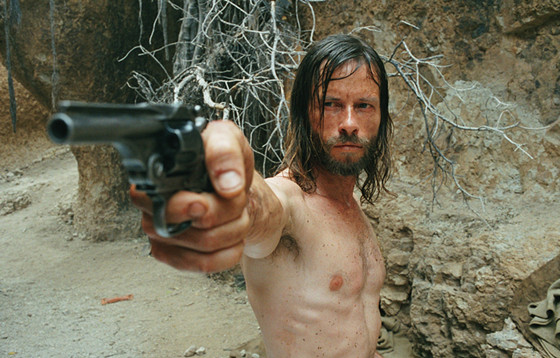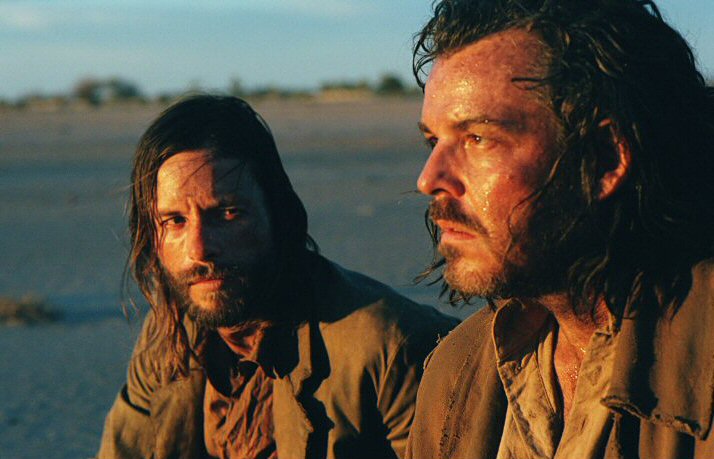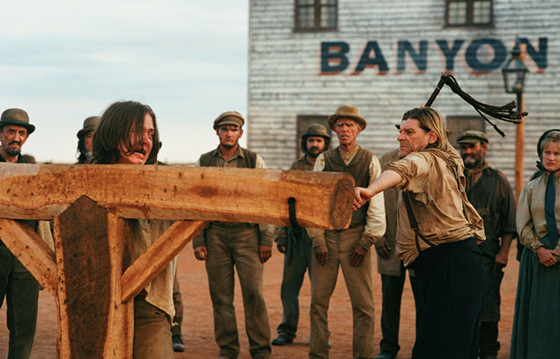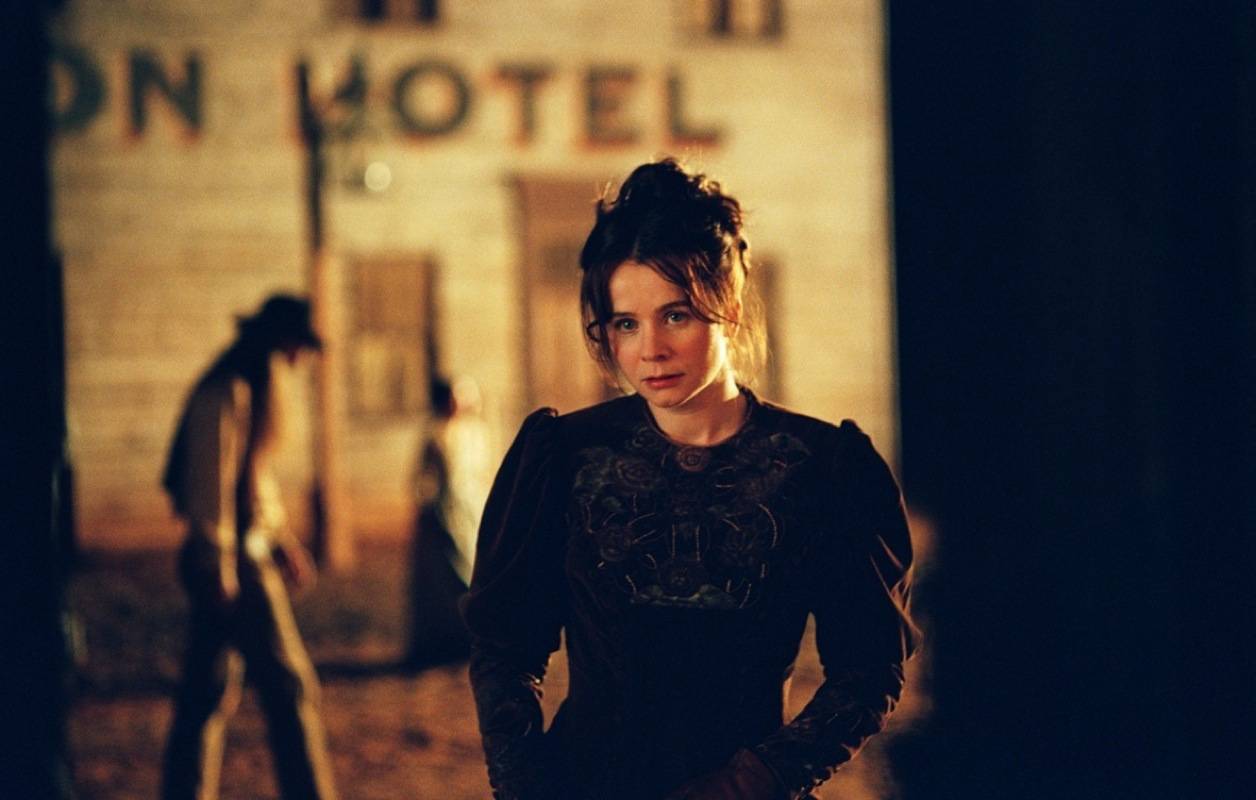
Throughout much of the middle of the 20th Century that made up the Golden Age of Hollywood, the most popular and financially successful film genre was the Western. In this time, John Wayne was one of the biggest box office draws, and films like Stagecoach, High Noon, The Searchers, and The (original) Magnificent Seven were counted as among the strongest of their era.
As the 1970s drew near, more gritty and violent Westerns like The Wild Bunch, as well as Sergio Leone’s famed Spaghetti Westerns, helped redefine and reshape the classic tales of cowboys, outlaws, and settlers facing the harsh reality of life on the frontier. But, in the final decades of the last century, the genre mostly faded away into nostalgia and obscurity – save for a couple of lone gems like 1992’s Unforgiven and the somewhat problematic Dances with Wolves (1990).
Fortunately, the new century brought with it a resurgence in Western films. Quentin Tarantino’s two Western projects, Django Unchained and The Hateful Eight, brought a new generation of viewers into the classic American narrative.
A bevy of fantastic Westerns – like The Revenant, True Grit, The Assassination of Jesse James by the Coward Robert Ford, Open Range, Blackthorn, The Missing, Bone Tomahawk, and Slow West, among others – have made their way to theaters over the past 17 years.
However, one film that often gets tragically lost and overlooked amongst this Western Renaissance is John Hillcoat’s 2005 effort The Proposition. While many of the aforementioned films attracted Academy Award and Golden Globe nominations, The Proposition truly stands out as a new classic of the Western Genre for a number of reasons.
1. The Antiheroes

It has long been a staple of Westerns to challenge traditional ideas of good versus evil. Protagonists of the genre have regularly been outlaws, bandits, gunslingers, and the like. The presence of antiheroes and ambiguous ideas of morality are taken to an enthralling extreme in The Proposition.
The plot revolves around two brothers and members of the notorious Burns Gang being captured by the man in charge of bringing law and order to an Outback settlement: Captain Morris Stanley (Ray Winstone).
Captain Morris, rather than simply taking the brothers in, offers the older of the two, Charlie Burns (Guy Pearce), a proposition: he will pardon both Charlie and the younger and mentally diminished Mikey (Richard Wilson) if Charlie hunts down and kills their eldest brother and leader of the gang, Arthur (Danny Huston). This brief description alludes to the fact that none of the main characters could be considered ‘good’, per se.
Captain Morris is driven by a blind obsession, often repeating the mantra, “I will civilize this land.” He gives a known killer a horse and a gun, determining that it is the lesser of two evils. Charlie is clearly conflicted by the proposition, as shown through his heavy drinking upon his release as well as his repeated choice to not kill his brother when given the opportunity.
Through the entire film, Charlie’s quiet demeanor and flat affect hide whether he accepted Morris’ offer out of his own selfish desire for freedom or to protect his weak younger brother.
Through the film it is revealed that Charlie took Mikey and left the gang because of Arthur’s increasing violence and impetuousness; however, Charlie’s conflict rarely seems to come from a place of altruism or benevolence. Arthur Burns, along with his loyal followers Samuel (Tom Budge) and Two Bob (Tom E. Lewis), is obviously the villain, but a true hero is nowhere to be found. There are drunks, bounty hunters, racists, sexists, and all manner of people who appear morally bereft.
Even the most innocent character, the Captain’s wife Martha (Emily Watson), turns to vindictive brutishness when she steps in and forces her husband to allow for the malicious and fatal whipping of the imprisoned Mikey. Through these characters, The Proposition shows that evil and brutality exist everywhere, while kindness and morality are much harder to find.
2. The Stark, Breathtaking Landscapes

A standard of Westerns is to utilize setting as a key element in showing the vastness and harshness of the untamed land. Classically, the deserts of the American Southwest, the snow covered crests of The Rockies, the rolling golden hills of The Great Plains, or the red boulders and rock formations of Utah and Arizona have served as the backdrop for these tales.
In The Proposition, the blinding yellows and oranges of the Australian Outback stand in as an essential character in creating the tone and themes present in the film. Rocky hills, scraggly shrubs, and endless amounts of dust and sand permeate every shot. The cloudless sky makes the scalding rays of sunlight nearly palpable through the screen, and the illuminating and endless starlight turn night into a wondrous spectacle. The beauty of this place is its sparseness and danger.
Captain Stanley’s singular focus on taming the land and protecting his wife’s perceived innocence seems all the more futile when viewing the sheer harshness of the land. The Stanleys attempt to wall the infinite cruelty of the land off with fencing and mask its ruthlessness with pristine rosebushes. Their senselessness in this endeavor helps highlight Captain Stanley’s, and Mother England’s, misguidedness in his stated mission of forcing the people and the land to submit.
3. The Inclusion of Australia in the Genre

The Proposition is certainly not the first Australian Western. “Meat Pie” or “Kangaroo” Westerns have sporadically popped up throughout Australian film history.
After all, Australia has its own tradition of rogue outlaws, starting with the escaped convicts known as bushrangers, whose presence and legacy mirrors that of the classic American gunslingers. However, films about infamous Mad Dog Morgan and Ned Kelly have often been categorized as “Ozploitation” – creating and building upon stereotypical outsider ideas of the Land Down Under.
Through The Proposition, viewers get a much more accurate picture of life in rural Australia in the late 1800s. The colonial presence of English Empire, in its desire to transform this rugged land in its own image, looms tenuously over the people. The legacy of nonconformity and rugged individualism that had its foundation in Australia’s penal colony roots is shown through a number of characters and their actions.
The callousness and injustice towards the indigenous Aborigines (which will be looked at further below) is as much a part of the setting as the previously mentioned landscape. Every detail of the film speaks to the hardship faced by the frontiersmen who called this arid land home. For American audiences, this is an image of Australia that has often been overshadowed by Crocodile Dundee caricatures and the modern nonchalant Australian stereotype.
4. The Commentary on Indigenous Cultures and Colonialism

American Westerns of the Golden Age typically utilized the Native American as a trope. They were the bloodthirsty, primitive savage that was just another hurdle for the noble lawman to overcome. More recent Westerns began to paint a more sympathetic and accurate picture of America’s indigenous population. Even still, many Westerns have struggled with how to present the relationship between the colonized and the colonizer. It is in this struggle that The Proposition shines.
The film begins with a montage of old photographs, many featuring Aborigines. There are times when they are shown being lorded over by the British. Perhaps even more troubling are the images when Aborigines are dressed up in Western garb, reflecting the government mandated assimilation policy The Aborigine Protection Act of 1869. The film has been praised for its accurate portrayal of the strained relationship between the indigenous population and the British and Irish settlers.
Many of the Aborigine characters are shown briefly and maintain their traditional lifestyle. In one worrisome interaction, a group of males are arrested and questioned by Captain Stanley. He asks how long they have been hiding in the hills.
To this, they respond that they don’t hide in the hills; they live there, showing the general misunderstanding of their culture by the English. Of course, this entire interaction is mediated through the Aborigine guide and translator Jacko (David Gulpilil), who is tragically pressured into turning against his own people. Later, a party of police officers, along with Jacko, tracks down and kills a group of Aborigines, including women and children.
In a more subtle commentary, the Stanleys’ servant Tobey (Rodney Boschman) takes off his required shoes and socks when he leaves the house to walk to his own home across the rough landscape, highlighting the overt culture clash. As Ty Burr of The Boston Globe put it in his initial review of the movie, “The film’s view of the indigenous locals is sad and clear-eyed. No matter which white man is fighting which, it’s the Aborigines who lose.”
An additional layer of critique of colonization also occurs with The Proposition. In an interesting encounter with a bounty hunter who is also tracking Arthur, Jellon Lamb (John Hurt), Charlie has a conversation that shows the casual, engrained xenophobia that comes inevitably with occupation. Lamb casually hurls insults at the Irish, which draws the eventual ire of the normally stoic Charlie.
When this conflict rises, Lamb defuses the situation by saying, “We are white men,” indicating that they are inherently civilized especially when compared to the indigenous population. The multiple layers of racial, ethnic, and national hierarchies reflect the damaging impact of imperialism.